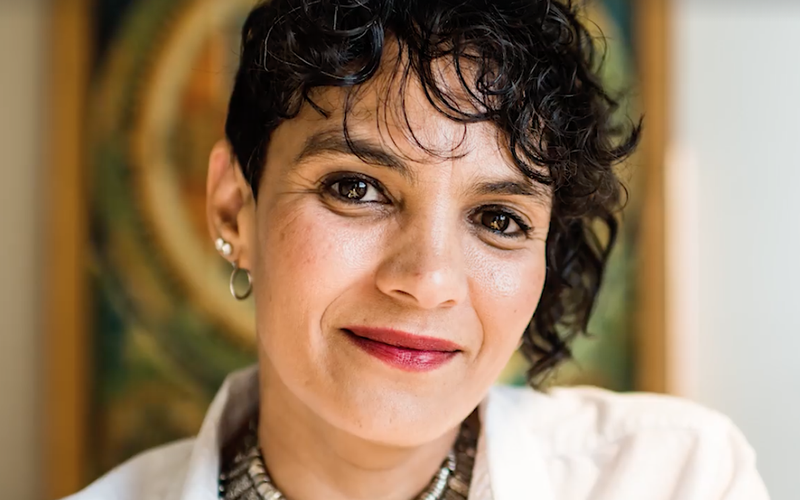Paralysed by gangs: Fighting back with film
Updated | By Beautiful News
Gang violence changed Shelley Barry’s life, but she followed her dreams to become one of South Africa’s most influential filmmakers, creating change with her films and her activism.

Shelley Barry almost lost her life to gangs. On her way to a job interview, Barry’s taxi was caught in a crossfire. A bullet intended for the driver hit her, severing her spinal cord and piercing both her lungs. Barry was given just three hours to live. But she defied the odds and fought back. The incident left her paralysed and in a wheelchair, but it didn’t stop her from chasing her goals. In the 22 years since the accident, Barry has made incredible contributions to the South African film industry, as well as to the rights of people living with disabilities.
After completing her undergraduate degree locally, Barry was awarded a scholarship to complete a Master’s degree in Philadelphia. “What I’m proud of is going beyond the own limitations in my mind and thinking, ‘Why can’t I still be a filmmaker?’” Barry says of her mindset following the shooting. When she returned to South Africa, she founded Two Spinning Wheels Productions and has since made numerous award-winning films and documentaries. Barry has also worked with acclaimed filmmaker Mira Nair and held the position of Chief Examiner of the South African Film and Publications Board. “It’s my passion. It’s what I want to do every day when I wake up,” she says. “I particularly believe in using video as a tool for social change.”
When not making films, she’s adding to an extensive list of published poetry and positively impacting the lives of people living with disabilities. Barry has served the Presidency twice, in the Office on the Status of Disabled Persons, and as the National Parliamentary Policy Coordinator for Disabled People South Africa. In this time, her work has changed legislature and contributed to our constitution. In 2006, she addressed the United Nations, calling for an end to gun violence. Her activism is a reminder that the incident may have limited her mobility, but Barry still has her voice. “One thing I discovered in my journey of recovery is that disability is just another way of being,” Barry says. “It doesn’t mean that you have a lesser-than existence.” Her experience of gang violence is a reality for many. But Barry’s continued efforts toward change display the resilience, strength and positivity that South Africans are capable of in the face of hardship.
DON'T FORGET TO CHECK OUT THESE OTHER BEAUTIFUL NEWS ARTICLES:
For this and other Beautiful News stories, click here.Show's Stories
-
Lenny Kravitz completes his workout in leather pants
This doesn't seem surprising for this legend...
Vic Naidoo 2 hours ago -
Dog disrupts work meeting with loud slurping
We're sure most dog families have been through this...
Vic Naidoo 2 hours ago